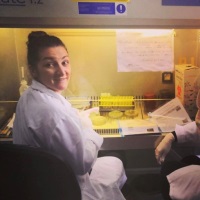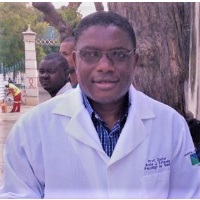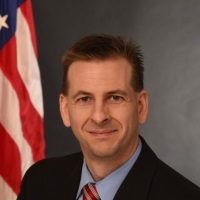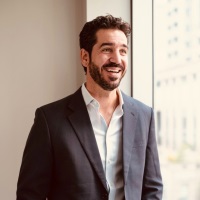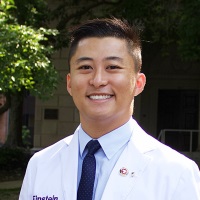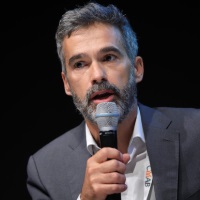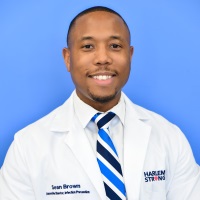2024 Conference Agenda

Philadelphia, PA, 5 - 6 September 2024
Schedule
Create your personal agenda –check the favourite icon
Registration & expo opens
Registration & expo opens
Opening remarks from Terrapinn
Opening Remarks from Terrapinn
Chairperson's opening remarks
Recorded remarks from Congressman Mike Levin
Keynote opening plenary: Never surrender: Mobilizing the global fight against antibiotic resistance
The keynote opening plenary, “Never surrender: Mobilizing the global fight against antibiotic resistance,” aims to pinpoint the tools necessary in combatting antimicrobial resistance worldwide, from new therapies to increased antibiotic stewardship. What is the ‘wake-up’ call experts – and communities – need? Experts from Recce Pharmaceuticals, based in Australia, and the American Society for Microbiology will be on site to discuss.
Sponsored by Recce Pharmaceuticals
Keynote panel: Strengthening global health architecture to readily respond to the next health emergency
As the world approaches the five-year mark for the COVID-19 pandemic, cases are once again on the rise. WHO has declared the mpox outbreak in Africa another Public Health Emergency of International Concern (PHEIC) and H5N1 bird flu continues to spread. Meanwhile, governments agreed to strengthen the International Health Regulations, but have thus far failed to reach consensus on a global pandemic agreement. The panel will debate if, and how, the world is better prepared than before COVID, and what are the most acute weaknesses in the global health architecture that must be urgently addressed to respond to the next health emergency.
Keynote panel: Challenges and opportunities for access and stewardship in low-income countries
In a conversation with Oliver Barns of the FT, scientific and medical leaders from GSK and GARD-P will discuss the challenge of access and stewardship for antibiotics in the context of lower-income country settings. They will define the components of the problem and share how their organizations are approaching this challenge as well reasons to be optimistic for a better future.
Sponsored by GSK
Networking, Posters, & Expo Hall Opens
Networking, Posters, & Expo Hall Opens
Chair Person
Chair Person
Chair Person
Chair Person
Chair Person
Chair Person
Chair Person
Chair Person
Panel: Building the framework: Sustainable lab strengthening in LMICs
AMR disproportionately impacts low- and middle-income countries, and yet rapidly and effectively surveilling and detecting drug resistance hinders efforts to combat AMR. Access to diagnostic services is a significant obstacle for nearly half the global population, and only 1–2% of clinical laboratories in sub-Saharan Africa conduct bacteriology testing. This session will discuss challenges and solutions to increase access to quality-assured diagnostic services.
Presentation: Past, present and future of antimicrobial resistance: The insights from AMR burden time trend and forecasting analysis
Presentation: DISEASE X- The 100 days mission to end pandemics
Presentation: How can current reimbursement models be leveraged while waiting for ‘pull’ incentives?
Sponsored by Debiopharm
Presentation: How can we protect antimicrobials from infodemic impacts? A One Health perspective on the information environment
Presentation: Novel DNA pol IIIC inhibitors for gram-positive bacterial infections: Lead product candidate ibezapolstat advancing to phase 3 trials
Presentation: Project NextGen: Enhancing preparedness with next generation medical countermeasures
Presentation: The promise of Recce anti-Infectives: Tackling AMR with cutting-edge treatments
Sponsored by Recce Pharmaceuticals
Presentation: Upscaling innovation: Bringing visibility into vaccines supply chains within LMICs
Fireside Chat: Investing in community partnerships to achieve vaccine equity
Panel: How to Make the WHO Pandemic Agreement Feasible and Equitable
Panel: Breaking the cycle: Tackling antibiotic overuse with smart data, enhanced stewardship, and diagnostic precision in outpatient care
This session will focus on addressing antibiotic overuse in outpatient care, emphasizing the importance of patient education, managing expectations, challenges and tools to implement stewardship practices, and the critical role of diagnostics in making informed decisions to combat antimicrobial resistance.
Sponsored by Biomerieux
Panel: Navigating the future: Strategies and challenges in AMR policy development
Explore the future of AMR policy development with insights on sustaining innovation, ensuring global access, and overcoming implementation challenges. Join us for a discussion on effective strategies and interdisciplinary collaborations to combat antimicrobial resistance.
Presentation: Advancing antibiotic research through interdisciplinary collaboration
Presentation: Breaking barriers in antivirals, XAFTY®: A comprehensive approach for multiple viral infections
Presentation: Drawing public health insights from wastewater surveillance for AMR
Presentation: Leveraging microbiome science to tackle AMR & the development of novel anti-infectives
Sponsored by CosmoID
Panel: A one health approach: Wastewater surveillance for AMR
Sponsored by Resistomap
Panel: Modernizing incentive structures: A roadmap to strengthen antimicrobial development
Panel: Navigating the landscape - Strategies for early-stage developmental funding
The panel will address current strategies for early-stage funding chosen by the different panelists and give examples of successful company founding and funding. It will also address gaps and issues with the current funding landscape and within and between the supporting partners, and finally on novel business strategies chosen by the panelists to cope with those gaps. The addressed audience are start-ups, scientists and business developers in the AMR field and those planning to build a start-up, organizations supporting start-ups and everyone interested in early-stage development in the field of AMR.
Sponsored by LifeArc
Presentation: Leveraging virtual learning for antimicrobial stewardship: Insights from TEACH AMS ECHO programs in Africa and Latin America
Presentation: Preventing zoonotic spillover: The role of novel next-generation animal vaccines
Fireside Chat: Impact, policy & awareness: Redefining value for novel outpatient antibiotics
Sponsored by GSK
Presentation: Evaluating vaccine efficacy against emerging pathogens: Standardized assay development
Presentation: FebriDx; A rapid point-of-care test tool to aid clinicians in the reduction of antibiotic misuse in acute respiratory infections
Sponsored by Lumos Diagnostics
Presentation: Incorporating social dynamics in antimicrobial stewardship implementation
Keynote panel : Building a common agenda for AMR: Finding the overlap between LMICs and high- middle income countries
AMR is one of the top ten global public health threats facing humanity. This month’s high-level meeting on AMR at the UN General Assembly is a unique opportunity for world leaders to re-focus and align on collective solutions that improve access to medicines, strengthen antimicrobial stewardship, diversify financing options, encourage cross-sector data sharing, galvanize multi-sectoral responses to AMR and catalyze country-led solutions to address access and innovation barriers. This panel discussion will seek to outline shared challenges and priorities across LMICs and high- middle income countries and consider how country-led solutions can further address and mitigate the underlying drivers of antibiotic resistance in human, animal and environmental health sectors.
Sponsored by AMR Action Fund
Sponsored by Sandoz
Roundtable 1: Certification Opportunities in Infection Prevention and Control: A Roundtable Discussion with the Certification Board of Infection Control & Epidemiology
Roundtable 2: Next generation scientists for R&D of antimicrobials
Roundtable 3: One health and pathogen emergence: Understanding the movement between environment, animals, & humans
Roundtable 4: Applications of Global One Health Multifactorial AMR analyses to guide our understanding of its evolution and identify potential interventions
To be announced
Roundtable 5: What data is needed to fit current payer evidence requirements and how can we generate it
Sponsored by Debiopharm
Roundtable 6: The importance of equity in AMR
Sponsored by Cepheid
Roundtable 7: Effective strategies for antimicrobial resistance surveillance
Sponsored by Takara Bio
Roundtable 8: A broad spectrum antiviral: Xafty for future pandemic preparedness
Roundtable 9: The antibiotic balancing act: AMR stewardship and patient outcomes
Reserved for Shionogi
Chair Person
Chair Person
Chair Person
Chair Person
Chair Person
Chair Person
Chair Person
Chair Person
Short break before track sessions resume
Short break before track sessions resume
Panel: Effective public private partnerships for pandemic response
This panel willexplore critical aspects of successful public-private collaborations in addressing globalpandemics focusing on four key objectives:
To establish a clear, shared vision aligning public and private sector goals to create a unified approach to pandemic response.
To advance health equity through accessibility and transparency for open communication between all partners to build trust, utilize resources, and enhance partnership effectiveness.
To identify concrete action steps for public-private partnerships to support solutions to pandemic challenges.
Panel: AMR awareness: The next important step in our battle
Sponsored by Recce Pharmaceuticals
Panel: Delivery innovations for optimizing disease control and mitigating AMR
Presentation: Advancing microbiome therapeutics as a novel technology in the arsenal against AMR
Sponsored by Seres Therapeutics
Presentation: Agency for Healthcare Research and Quality (AHRQ) AMR-related activities: Research to implementation
Presentation: AI for antibiotic development
Presentation: International Instruments and tools to address AMR in the One Health scenario
Presentation: The importance of early detection: My sepsis survival story
Panel:The role of ID surveillance to reduce AMR
Sponsored by Cepheid
Presentation: Betting on the right therapeutic phage using high-performance bioinformatic
Sponsored by Rime Bioinformatics
Presentation: From bedside to clinic: Navigating the landscape of antimicrobial stewardship challenges
Presentation: Precision microbiome engineering as an alternative to antibiotics to prevent bacterial infections in agriculture
Presentation: Pulling together – an industry perspective on how the NHS England subscription model aims to address the challenges for antimicrobial drug development
Sponsored by Pfizer
Fireside Chat: Shaping UNGA Priorities: Global Citizens' Juries on AMR - Engaging the Public in Malawi, Thailand, and the US
Panel: Cross-sector engagement: One health AMR success stories
One Health is a collaborative, multi-sector and transdisciplinary approach recognizing that human health, animal health, and plant and environmental health are inextricably linked. Expert panelists will provide an overview of their efforts or initiatives that demonstrate how a One Health approach can be used to successfully address challenges presented by AMR. The discussion will include how a One Health approach can be deployed to address AMR, as well as challenges and measuring success.
Panel: Patient-centric approaches in the AMR drug pipeline
Panel: The role of the IP, nurse and nurse practitioner: Driving antimicrobial stewardship at the bedside
This panel session will provide the opportunity to discuss the integral role of infection preventionists, nurses, and nurse practioners as part of the inter-professional antimicrobial stewardship team and beyond.
Presentation: Tackling pandemic pathogens: Gene-encoded antibodies as pre-exposure prophylaxis
Presentation: The impact of biofilms on AMR and challenges faced in antimicrobial efficacy testing
Sponsored byTentamus Group
Presentation: AMR comms coalition: How coordination supports political cut-through
Presentation: Clinicians underutilize novel antibiotics in AMR infections: What will it take to move the dial?
Short break before keynotes
Short break before keynotes
Afternoon Chairperson Opening Remarks
Keynote Plenary: Implementing the 100 day mission into action: Where are we now?
Keynote panel: From awareness to action: Identifying tailored solutions for AMR
The need for a coordinated cross-sector response to the AMR crisis is abundantly clear. Yet mobilizing a wide-ranging network of stakeholders in a challenged and resource-constrained environment is no small task. This panel draws upon insights from advocacy and industry to identify opportunities and illuminate a pathway to meaningful solutions.
Sponsored by Menarini Group
Keynote panel: Global champions for AMR: Shaping narratives and influencing policy with the first taskforce of AMR survivors
Create your personal agenda –check the favourite icon
Registration & expo opens
Registration & expo opens
Keynote: Chairperson’s opening remarks
Keynote panel: AMR: Tackling a silent pandemic with a one-health approach
With panelists from the CDC, USDA, IDSA, and sponsored by bioMérieux this session will explore the One Health elements that are critical to strengthening antimicrobial stewardship programs. The impact on AMR extends beyond inappropriate human use and it is important to take a One Health perspective when considering the causes and potential mitigation strategies. From the environmental perspective various sources like agriculture and healthcare create a breeding ground for antibiotic-resistant bacteria. Ensuring impact will require action throughout the AMR ecosystem by all sectors at the global, country, and organizational levels. Attendees will be left with an improved understanding of a One Health framework to stewardship and what critical elements that should be included in a framework.
Sponsored by bioMerieux
Keynote panel: Putting AMR on the global agenda: Setting targets, accelerating action, and ensuring accountability
Sponsored by Pfizer
Keynote Plenary: Why the world needs its own immune system
Sponsored by Ginkgo Biosecurity
Networking, Posters, & Expo Hall Break
Networking, Posters, & Expo Hall Break
Chair Person
Chair Person
Chair Person
To be announced
Chair Person
Chair Person
Chair Person
Chair Person
Chair Person
Chair Person
Fireside chat: A new grand bargain to improve the antimicrobial market for human health
Fireside Chat: Breaking down surveillance system silos: What can we learn from the development of the Integrated PVS Planning Toolkit for NTDs?
Investors panel: Seeking returns from investing in anti-infectives
Panel of investors in AMR will discuss deal dynamics and areas of particular interest.
Panel: Building a Pandemic-Resilient Society: Making the Investment Case for Pandemic Preparedness
This panel will explore intersection of venture investment and government strategies in pandemic preparedness. We will explore current investment trends in health technologies, especially those related to infectious diseases, and discuss how both private and public sectors can collaborate to build a more resilient society. Key topics include the role of public-private partnerships, the importance of early detection technologies, and strategies for prioritizing resources in global health preparedness. This session offers valuable insights for stakeholders looking to strengthen their impact in the face of future health challenges.
Panel: Everything, everywhere, all at once. Why the common thread in resistant, infectious diseases may be biofilms
Sponsored by N8 Medical
Panel: Vaccines for AMR: Demonstrating value and acting for impact
Presentation: Breaking down barriers: Health equity strategies for underrepresented communities
Presentation: Bridging the gap: Transitioning rapid detection methods for food safety use
Presentation: Tackling antimicrobial resistance in healthcare: The significance of robust health and economic data
Fireside Chat: Alternative avenues for AMR: Funding without venture capital
Panel: Women's health: AMR today & more importantly, tomorrow
Panel: Pandemic risks, management, & mitigation: Conversations with health officials
Presentation: A future call on diagnostics: Addressing the global antimicrobial & diagnostic pipeline through the UK PACE initiative
Presentation: Transforming antibiotic resistance surveillance while balancing sensitivity with nanoscale high-throughput qPCR technology
Sponsored by Takara Bio
Panel: Diagnostics partnerships to combat AMR in LMICs
This panel will feature a discussion on partnerships that are focused on advancing diagnostics in LMICs to guide use of appropriate antibiotics. Panelists will share updates on their programs from different perspectives such as a donor perspective, an implementor experience and from a product development partnership perspective. Learn about the newly launched partnership called AMRASI (Antimicrobial Access and Stewardship Initiative) from Elijah Kahn from USAID, an update from on the Nigeria field studies to understand the epidemiology of bacteremia syndromes in children from Dr. Obaro from the University of Alabama, Bringham and about new diagnostics products and programs from Kavi Ramjeet of FIND. The panel will be moderated by David Ripin, Chief Science Officer| Clinton Health Access Initiative.
Panel: Leveraging partnerships for antimicrobial developments
Panel: The economic burden of AMR
Presentation: Future breakthrough therapy in the prevention of AMR infections - A synthetic, autonomous, AI-chosen microbiome based biotherapeutic. Human Biome's journey to make it real
Presentation: Liposomal encapsulation of polysaccharides (LEPS) as an effective vaccine strategy to protect aged hosts against S. pneumoniae infection
Presentation: What’s next? Predicting and preparing for the next pandemic
Presentation: Amicidins - Guarding the gateways to sepsis
Sponsored by Macro Biologics
Presentation: Amnesia or Action? Driving political will to prevent the next pandemic
Presentation: Emerging antimicrobial resistance: The importance of vaccines and the role of investors
Presentation: Enhancing clincial trials through diversity
Presentation: Rifampin-resistant Tuberculosis- A pediatric cluster investigation
Networking break & film screening: HOLOBIOME
What if you found out that, on a cellular level, you, your body at least, is more microbial than human. And what if it wasn’t just your body that is more microbial than it seems, but that almost everything, all life on earth, is made possible by microbes? The concept of the Holobiome captures this reality and also beckons us to reconsider our understanding of health and infectious disease, along with our relationship to the microbial world. This series currently features two innovative short films that explore this emergent, holobiome, understanding of life and health.
Film 1 Maddie's Transplant (20min) is a documentary featuring the harrowing tale of a young woman and her mother confronting what happens when the human immune system becomes compromised and the drugs stop working.
Film 2 Bradley's Burden (18min) is a sci-fi / documentary hybrid explores the future past of biotechnology and the need for innovation and more innovative thinking in our relationship with infectious diseases and the microbial world
Roundtable 1: Highlighting humanitarian priorities in global AMR strategies and the UNGA high-level meeting agenda
Roundtable 2: AMR-related grant funding through the agency for Healthcare Research and Quality (AHRQ): Areas of interest and tips for success
Roundtable 3: Overcoming misinformation and restoring trust in public health in rural Tennessee through cinema
Roundtable 4: Targets and accountability: How can progress be maintained in the global response to AMR beyond this year’s UN High-Level Meeting
Roundtable 5: Antibiotic stewardship in veterinary medicine: Progress and remaining challenges?
Roundtable 7: Pandemic preparedness 2024: Where are we?
Roundtable 8: What manufacturers need to know about New Technology Add-On Payments (NTAP)
To be announced
Chair Person
Chair Person
Chair Person
Chair Person
Chair Person
Chair Person
Chair Person
Short Break Before Track Sessions Resume
Short Break Before Track Sessions Resume
Fireside chat: Institutional investors: Allies in the fight against AMR
Panel: Economic & procurement tools to improve antibiotic access: SECURE and other initiatives
Economic & procurement tools to improve antibiotic access: SECURE and other initiatives: The objective of this panel session is to assess the progress made in developing and implementing effective policy options to improve the procurement of new and existing antibiotics, with the goals of enhancing sustainable access, preventing overuse, and ultimately spurring research and development.
Presentation: Adapting for accessibility & affordability: Saliva as a sample type to overcome testing barriers for better outbreak control
Presentation: Candida auris: Turning challenges into successes at your healthcare facility
Presentation: Harnessing the power of genomics to understand antimicrobial resistance emergence in the environment
Presentation: NIAID pandemic preparedness plan
Presentation: Regional and national trends in consumption of antimicrobials in Pakistan; Pre and post-COVID (2019–2021)
Fireside Chat: The evolving threat of AMR: Data, burden trends, and strategies
Panel: Detecting and correcting misinformation online - What's next?
Panel: Role of certification in reducing risk of infection and transmission of AMR
What role can certification play in reducing the risk of infection and transmission of AMR? Join certified infection prevention and control professionals from The Association for Professionals in Infection Control and Epidemiology and the Certification Board of Infection Control and Epidemiology for this panel discussion. Topics will include the impact of certification and infection rates, how certified infection preventionists (IPs) are collaborating with antibiotic stewardship programs, and the value of collaboration between IPs and other departments within both acute and long-term care settings.
Presentation: Next steps: Standardizing guidelines for phage susceptibility testing
Presentation: Preclinical development of human monoclonal antibodies targeting novel cell wall proteins in drug resistant fungal pathogens
Presentation: The challenges and promise of using pan-pathogen diagnostics and metagenomics for surveillance and discovery
Panel: From new drug developments to new approaches: Tackling the emerging threat of anti-fungal resistance
Panel: Strengthening antibiotic regulation: Antimicrobial Resistance in lower-middle-income countries and its global implications
Presentation: Cracking the code: MDRO surveillance secrets revealed
Presentation: Regulatory framework for the development and clinical use of bacteriophage therapy products
Get involved at Disease Prevention & Control Summit America




















